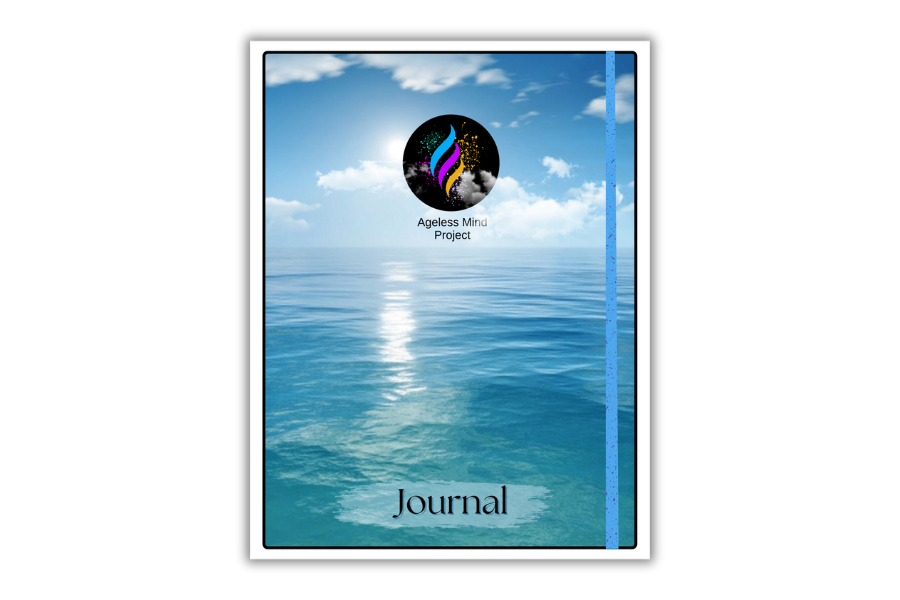I want to begin this personal account by reprinting the origin story of the Ageless Mind Project, which I first published in late 2023 on our AMP Substack.
One morning in the mid 1990’s my mother got up and could not remember how to put her clothes on. Did the bra go on under or over the shirt, she asked. She was 81 and had lived longer than anyone on either side of the family so far. We, her children, had no experience with older people and until that moment we truly didn’t recognize what had, in fact, been happening over a couple of years, even though she was living with my sister and her family. We knew she had been somewhat depressed since my father died a dozen years before. She had begun ruminating about the past, sharing things she had kept hidden for years. But this new behavior was a sign we couldn’t ignore.
Of course, we immediately consulted neurologists and other specialists. Was it Alzheimer’s or vascular dementia or something else? In a way, the diagnosis didn’t matter: she needed care. So she came to live with my husband, Josh, and me. We were in our mid-50’s, and our sons were out on their own after college. We had space in our house. That was our practical response to the situation.
That wasn’t the last time Josh and I took care of family members with dementia, but it was probably the most powerful because we were so unprepared. At first, all I could feel was stress and sadness. But human beings are resilient creatures. I gradually found a path that led to what is now the Ageless Mind Project.
At first, I started learning everything I could about dementia. The news was dispiriting. But then I discovered that people were also researching the opposite – how to promote brain health. I joined organizations that focused on that. Researchers were just starting to demonstrate how lifestyle changes could be preventive and also have a positive effect on outcomes for some forms of dementia.
These changes have become standard advice now. To put it most simply: physically - focus on aerobic exercise and strength training; mentally - take on new challenges; emotionally - prioritize social relationships and cultivate a sense of purpose and meaning in life. But back then, they were novel and hopeful ideas.
In the mid-2000’s, when our personal caregiving had ended after the passing of our family members, Josh and I continued to experiment with activities that would encourage us and other people to do things to improve brain health and general wellbeing. Music (his field) and psychotherapy (mine) seemed like a natural fit. So, we created fun programs for Music and Happiness, the LLC we established. We invited groups of people to play with us -- in local libraries, at national conferences on aging, and through our website -- to experience the many ways music could strengthen their bodies, minds, and spirits.
Try this: put on a piece of rhythmic music, tapping on parts of your body (for instance, chest, thighs, arms) and anything around you (like a table, chair arms) to match the rhythm. It’s a doubly energizing experience!
In our mid-60’s we became very active with the American Society on Aging and other organizations that promote positive, active approaches to aging. These form the backbone of the resources we will be sharing on our website’s Resource page (coming soon). Then, in my early 70’s I discovered the virtual world of Second Life when Josh and I were presenting Music and Happiness at a positive aging conference. That was an astonishing experience. I saw how we could reach a much more global audience in imaginative ways by making the leap to an avatar-based online platform.
Josh and I both feel strongly, from our experiments over almost 20 years, that being proactive in following the exploding research on aging – not only reading about it but actually putting theory into practice – has exponentially improved the quality of our lives. We think of an “ageless mind” as a metaphor for a life-affirming way of being and doing that connects us better to our inner selves and to others. “Mind” is more than brain. It encompasses the whole-person-in-the-world.
Second Life introduced me personally to the power of community beyond national borders. There are many organizations in the world that offer similar opportunities. I consider them resources for our AMP community too. We are in our mid-eighties now, and we’re certainly not blind to the challenges facing humanity. What we want to do is keep ourselves resilient enough to be of help to younger generations. That takes conscious effort as well as good will.
I will have more to share in a future article about the benefits I have personally experienced from entering Second Life. I’ll include pictures and a short video to introduce you to my avatar and the many volunteers there who have helped me create our Whole Brain Health program on our virtual home, Inspiration Island. This is a crucial part of the Ageless Mind Project’s origin story too.
Copyright 2023 by Lynne Berrett. All Rights Reserved.
Please consider supporting the mission of Ageless Mind Project, a 501(c)3 nonprofit organization, to make science-based innovative activities that promote healthful aging available to as many people as possible through our online programs.
To learn more about AMP visit: https://agelessmindproject.org





